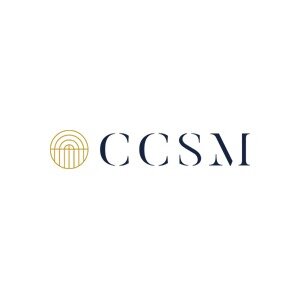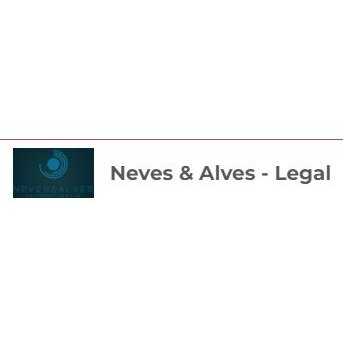Best Energy Regulatory Law Lawyers in Portugal
Share your needs with us, get contacted by law firms.
Free. Takes 2 min.
Or refine your search by selecting a city:
List of the best lawyers in Portugal
About Energy Regulatory Law in Portugal
Energy Regulatory Law in Portugal covers the legal and regulatory framework governing the production, distribution, and supply of energy, including electricity, natural gas, and renewable energy sources. This area of law sets out the policies, rules, and procedures that both companies and individuals must follow to ensure that the energy sector operates fairly, transparently, and in compliance with national and European Union (EU) standards. The primary aim of this legal field is to protect consumer interests, promote competition, facilitate investments in new technologies, and support Portugal's targets for renewable energy adoption and energy efficiency.
Why You May Need a Lawyer
Individuals, businesses, and organizations may need the assistance of a legal expert in Energy Regulatory Law for a variety of reasons. Common situations include:
- Obtaining licenses or permits for energy projects such as wind farms, solar installations, or power plants
- Understanding obligations under national and EU regulatory frameworks
- Negotiating and drafting energy purchase agreements and contracts
- Resolving disputes with energy suppliers or grid operators
- Participating in public consultations or regulatory proceedings
- Complying with requirements related to energy efficiency, emissions, and sustainability goals
- Dealing with issues related to tariffs, prices, and market access
- Advising on mergers and acquisitions in the energy sector
Legal guidance is crucial to navigate the complexities of the regulatory environment, avoid penalties, and ensure the successful completion of energy-related transactions and projects.
Local Laws Overview
In Portugal, the regulatory landscape for energy is shaped by both national legislation and EU directives. Some key aspects include:
- Energy Services Regulatory Authority (ERSE): The main regulatory body overseeing the electricity and natural gas sectors, ensuring transparency, competition, and consumer protection.
- Licensing: Developers of energy projects must secure various licenses and approvals, which can involve environmental impact assessments and compliance with urban planning laws.
- Renewable Energy: Portugal has robust laws promoting the use of renewable energy sources, with specific incentives and support schemes for investment in wind, solar, and hydroelectric projects.
- Market Liberalization: The energy market is largely liberalized, allowing consumers to choose their suppliers, but network operations and strategic resources remain regulated.
- Tariffs and Pricing: ERSE sets the rules for how electricity and gas tariffs are determined, balancing market forces with consumer protection.
- Grid Access: Rules ensure fair access to transmission and distribution grids for new market entrants and renewable energy producers.
- Energy Efficiency: There are mandatory requirements for energy efficiency in buildings and industry, aligned with EU objectives.
Frequently Asked Questions
What is the role of ERSE in Portugal?
ERSE is the national Energy Services Regulatory Authority responsible for regulating electricity and natural gas sectors, overseeing tariffs, ensuring network access, and protecting consumer rights.
Do I need a license to produce renewable energy for self-consumption?
Most small-scale self-consumption (e.g. rooftop solar panels) only require a registration, but larger facilities or those intending to sell excess power will need proper licensing from relevant authorities.
How does Portugal support renewable energy investments?
Portugal offers a range of incentives, including feed-in tariffs, auction schemes, subsidies, tax benefits, and priority grid access for renewable energy projects.
Can I switch my electricity or gas supplier freely?
Yes, since the energy market in Portugal is liberalized, customers can choose their supplier based on price or service preferences, subject to contract terms.
What are the main environmental requirements for energy projects?
Projects may need environmental impact assessments, compliance with zoning and urban planning laws, and adherence to EU environmental directives, particularly for larger developments.
How are energy tariffs set in Portugal?
ERSE regulates and reviews tariff structures to ensure they reflect market realities while protecting consumers; some components are fixed by the regulator, while others can be negotiated in the free market.
What should I do if I have a dispute with my supplier?
If direct resolution is not possible, you can seek intervention from ERSE, a consumer protection agency, or initiate mediation or legal proceedings with the help of a lawyer.
Are there restrictions on foreign investments in the energy sector?
Portugal encourages foreign investment in energy, especially renewables, but strategic assets may require additional governmental approval or compliance with ownership rules.
Is grid access guaranteed for new entrants or small producers?
Regulations ensure non-discriminatory access to the grid, but technical and capacity constraints may apply. Legal assistance can help navigate the application process and resolve disputes.
What happens if regulations change during my energy project development?
Laws can evolve, especially as EU and national energy strategies change. Legal counsel is important to monitor new requirements and adapt your project in compliance with updated rules.
Additional Resources
- ERSE (Entidade Reguladora dos Serviços Energéticos): Portugal's energy regulatory authority, offering guidance, regulations, and consumer information
- DGEG (Direção-Geral de Energia e Geologia): Government agency responsible for policies on energy and geological resources, including licensing and renewable energy
- ADENE (Agência para a Energia): Agency focused on energy efficiency and sustainability initiatives
- Portal do Consumidor: National consumer portal providing information about energy-related rights and dispute procedures
- Professional legal associations and law firms: Many offer specialized advice in Energy Regulatory Law
Next Steps
If you believe you need legal assistance in the field of Energy Regulatory Law in Portugal, consider the following steps:
- Outline the specific issue you are facing or your project requirements
- Gather all relevant documents such as contracts, permits, or correspondence with authorities
- Consult the websites of ERSE, DGEG, and other governmental agencies for initial guidance
- Seek recommendations for experienced energy law specialists or law firms
- Schedule a consultation to discuss your situation, potential risks, and legal options
- Work closely with your legal advisor to ensure compliance and address any regulatory or contractual issues
Taking timely legal advice can help avoid costly mistakes, ensure regulatory compliance, and protect your interests in Portugal’s dynamic energy sector.
Lawzana helps you find the best lawyers and law firms in Portugal through a curated and pre-screened list of qualified legal professionals. Our platform offers rankings and detailed profiles of attorneys and law firms, allowing you to compare based on practice areas, including Energy Regulatory Law, experience, and client feedback.
Each profile includes a description of the firm's areas of practice, client reviews, team members and partners, year of establishment, spoken languages, office locations, contact information, social media presence, and any published articles or resources. Most firms on our platform speak English and are experienced in both local and international legal matters.
Get a quote from top-rated law firms in Portugal — quickly, securely, and without unnecessary hassle.
Disclaimer:
The information provided on this page is for general informational purposes only and does not constitute legal advice. While we strive to ensure the accuracy and relevance of the content, legal information may change over time, and interpretations of the law can vary. You should always consult with a qualified legal professional for advice specific to your situation.
We disclaim all liability for actions taken or not taken based on the content of this page. If you believe any information is incorrect or outdated, please contact us, and we will review and update it where appropriate.
Browse energy regulatory law law firms by city in Portugal
Refine your search by selecting a city.
















